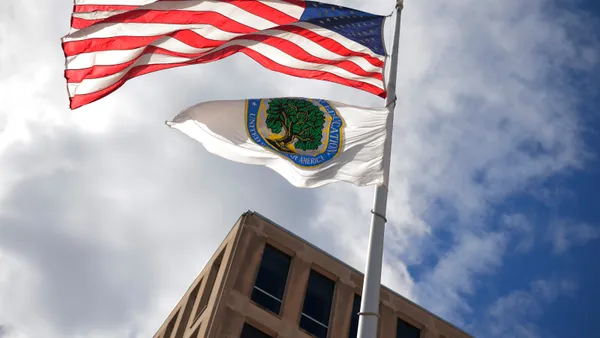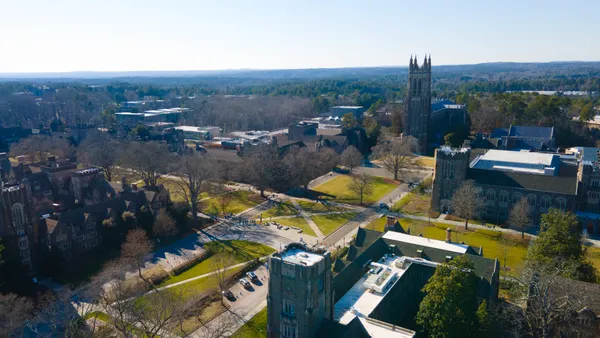Dive Brief:
- The Education Department is expected to miss two key Nov. 1 deadlines to deliver final regulations replacing Obama-era borrower defense and gainful employment rules, Bloomberg Government reported.
- A Trump administration official said the department needs more time to review the 38,000-plus comments it received on its proposed borrower defense rule. Missing the deadline means the Obama-era version of the rule could be reinstated this month, and the earliest the Trump administration's rule could go into effect is July 2020.
- The administration also will miss the deadline for the final version of its planned repeal of the gainful employment rule but hopes the rule will be finalized by year-end. The Obama-era version of the rule remains in effect.
Dive Insight:
The Obama-era borrower defense to repayment and gainful employment rules sought to more tightly regulate the for-profit sector, which included several large chains that faced allegations of predatory marketing practices, fiscal irresponsibility, poor instruction and little to no vetting of enrollees — leaving many students with degrees they couldn't use and debt they couldn't pay back.
Those rules, which take away the ability of for-profits to offer federal aid if they didn't comply, effectively pulled the rug out from under them and their remaining students. (Note: The Obama-era borrower defense rule has not yet taken effect.) They came following the high-profile collapses of for-profit chains Corinthian Colleges and ITT after they were denied federal aid money by the Education Department.
Nearly 20 states are also seeking to curb alleged predatory behavior by for-profits and prevent the current Education Department from removing the regulatory controls enacted by the Obama administration, namely the borrower defense and the gainful employment rules, according to The Hechinger Report. The for-profit industry has said the rules are too stringent.
Obama’s gainful employment rules took away federally backed student loans from colleges that couldn't prove their graduates were able to find jobs that would allow them to repay their debt and required them to offer data on post-graduation job-placement rates.
The Obama-era borrower defense rule strengthened an existing statute allowing students who claim they were defrauded by their college to seek federal loan forgiveness and require financially at-risk institutions to back the debt they issue students with their own collateral. The Trump administration has proposed narrowing the standard by which students can claim they were defrauded.
The accreditors providing oversight of for-profits have also been a focus of regulatory attention.
Last week, the Education Department said in a draft letter that the Accrediting Council for Independent Colleges and Schools (ACICS) — the accreditor overseeing Corinthian and ITT — was in compliance with 19 of 21 required standards for federal recognition and that it would have a year to comply with the remaining two.
The accreditor's permanent recognition was revoked in 2016 but the Education Department under Secretary Betsy DeVos reinstated it while the administration reviewed documents it said the Obama administration overlooked initially. Permanent federal recognition for ACICS — a decision DeVos delayed for the second time in August — would allow the colleges under its purview to issue federal student aid.













